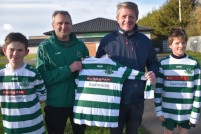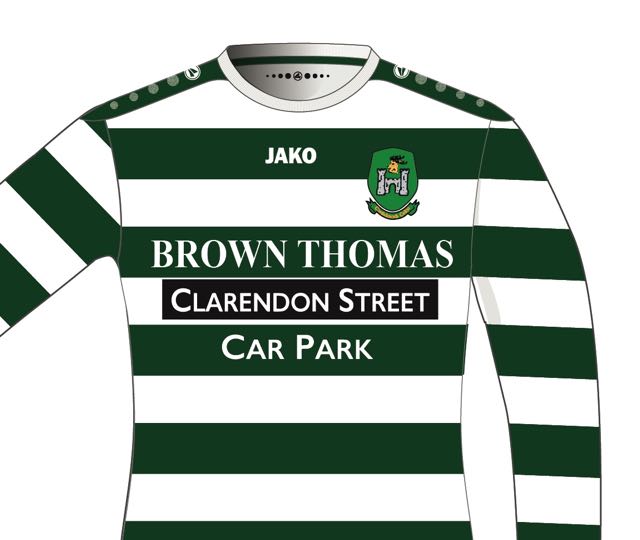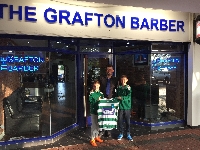
Castleknock Celtic Football Club
Grievance & Disciplinary Procedures and Policies
Individual Grievance Procedure
The aim of this procedure is to provide for the fair and full settlement of all grievances quickly and as near as possible to their point of origin with no disruption to football teams, Executive, Committees or Working Groups.
A grievance may be defined as a complaint which a member (or member’s parent/guardian) has concerning his or her sporting environment or sporting relationships.
- The procedure to apply shall be as follows:-
(i) A grievance shall in the first instance be referred by the member (or member’s parent/guardian if a child) to their football manager. If the grievance involves the football manager, then the grievance shall be referred to the club’s relevant Age Group Coordinator. Every effort shall be made to have the grievance resolved as quickly as possible at this stage but in any event within one week, or as early as possible thereafter.
While the matter is being considered at this or subsequent stages of the grievance procedure, football activities will continue as normal. Anyone raising a grievance shall not be prejudiced in any way in relation to the matter being raised.
(ii) Failing settlement at Stage (i), the member (guardian) may submit, in writing, the grievance to the Club Secretary within one week of the member being informed of decision under (i) above, upon which it may be investigated by the relevant Age Group Coordinator, or other member, as designated by the Club Secretary.
(iii) If the issue is not disposed of at Stage (ii), it may be referred in writing to the Club Chairperson (or nominee of Club Chairperson). An oral hearing shall take place within two weeks of receipt of the complaint, or on a date mutually agreed by the parties concerned and the decision given within a target timeline of 14 days thereafter, or as soon as is reasonably practicable.
(iv) This will represent the final stage of the procedure.
(v) At any or all stages of the Grievance Procedure, the member (or guardian) may be accompanied by a representative who shall be a fellow member of Castleknock Celtic Football Club or parent/guardian.
All reasonable efforts to resolve matters should be exhausted.
Disciplinary Policy & Procedures
It is accepted within Castleknock Celtic Football Club that our members want to be the best they can be These procedures are geared to establish a proper climate to enable this culture to flourish and to assist in the personal and sporting development of all members.
Corrective/Development Coaching:
Disciplinary charges will not be lightly preferred against any member. In the first instance Castleknock Celtic Football Club will seek to use corrective and development coaching to help redress any issues. Essential to the corrective/development coaching process is the co-operation of the individual member concerned who must be prepared to agree that a problem exists and to co-operate in resolving it. The successful operation of this process should allow for the resolution of many of the difficulties which arise without resort to formal disciplinary procedures. Initially there will be a discussion between the nominated Club Representative and member before corrective coaching and/or a disciplinary procedure is undertaken.
Corrective/Development Coaching Policy
The objectives are –
- to encourage the member to correct problems;
- to assist the member’s personal and sporting development within Castleknock Celtic Football Club;
- to improve sporting participation and morale;
- to avoid as far as possible the use of the formal disciplinary machinery to correct problems.
The instruments for implementation of this policy are –
(a) advice from senior Club Members, Coaches and Executive;
(b) assistance to avail of educational courses;
Disciplinary Procedures
For most members the question of disciplinary action never arises. When a disciplinary issue does occur it is essential to provide procedures which will allow the matter to be dealt with in a fair manner which aims to protect the dignity of the individual club member and safeguard the interests of Castleknock Celtic Football Club. Formal disciplinary procedures may arise for a perceived breach of the Club’s rules/regulations or contract for services or contract of employment or actions which are at variance with the interests of Castleknock Celtic Football Club or fellow members.
The procedures shall provide for:-
- the early notification that a complaint report (in writing) had been submitted to CCFC;
- a formal statement by CCFC in writing of the charge;
- the right to call witnesses;
- the right to representation by fellow Club Member;
- the right of appeal.
Disciplinary matters shall be processed expeditiously, and all parties shall cooperate to this end. Every disciplinary case shall be considered in the light of its own circumstances. The disciplinary action in each case shall reflect the circumstances of the case and the previous record of the club member concerned. In cases of alleged grave misconduct, a club member may be summarily suspended.
Step One
Any person who has a complaint or concern should bring it to the attention of the Club Secretary. The complaint or concern should be in writing and should outline all relevant details and other parties involved. The Club Secretary will acknowledge receipt of the complaint.
Step Two
The complaint or concern should then be brought to the attention of the Club Chairperson (or Executive member nominee) who will convene the club’s disciplinary committee/panel. If a complaint or concern relates to a child abuse matter or criminal offence that meets criteria for formal reporting to the statutory authorities, the process will be as per statutory guidelines, and not via a Castleknock Celtic Football Club committee/panel.
The disciplinary committee/panel will comprise a minimum of two (2) members. The Club Child Protection Officer may be asked to sit on the panel if it is deemed necessary.
Where there is potential conflict of interest issues, due consideration will be given to ensure the independence of the disciplinary committee/panel. This may include co-opting persons other than Discipline Committee and Child Protection Officer to the panel for the complaint at hand.
Step Three
The disciplinary committee/panel will furnish the person/s with details of the complaint being made against them and afford them the opportunity of providing a response either verbally or in writing. In the event of a complaint against a child (age 17 and under), the parents/guardians should be informed and advised of the procedure.
Step Four
The disciplinary committee/panel will then hear the case of all parties involved and decide if a rule or regulation has been infringed.
Step Five
The disciplinary committee/panel informs those involved of their decision and the sanctions, if any, that are to be imposed. This notification will be in writing, setting out the reasons for the sanction. Written notification will be forwarded to parents if the proceedings involve a participant under eighteen years of age.
Step Six
Any party unhappy with the findings of the disciplinary committee/panel can appeal the decision in writing to the club Chairperson (or Executive member nominee). Any such appeal must be made within seven days of the notification of the original decision.
Step Seven
The appeal will be heard by members of the executive committee of the Club, nominated by the chairperson. The case and all evidence will be considered. The executive committee will have the power to uphold or reject the appeal or to vary, alter or set aside any sanction imposed by the disciplinary committee/panel. Such decisions are final.
General Points:
All complaints relating to inappropriate behaviour/poor practice should be brought to the attention of the Chairperson of the Club. In all cases the safety and welfare of the child/children is paramount. All complaints will be checked out and handled in a confidential manner. All such complaints and actions taken will be recorded and kept on file.
Rumours
Rumours should not be allowed hang in the air. Any rumour/s relating to inappropriate behaviour/s circulating in the club should be brought to the attention of the Chairperson and checked out promptly. All ensuing information should be handled confidentially and with sensitivity.
False and misleading complaints will be dealt with appropriately.
Confidentiality
Confidentiality is about managing information in a respectful, professional and purposeful manner. It is important that the rights of both the child/member and the person about whom the complaint has been made are protected. Therefore, appropriate confidentiality will be maintained in respect of all issues and people involved in concerns about the welfare of a child or bad practice within the club.
The following points will be borne in mind:
- A guarantee of confidentiality or undertakings regarding secrecy cannot be given, as the welfare of the child will supersede all other considerations.
- All information will be treated in a careful and sensitive manner and will only be discussed with those who need to know.
- Information will be conveyed to the parents/guardians of a child about whom there are concerns in a sensitive way.
- Giving information to others on a “need to know” basis for the protection of a child is not a breach of confidentiality.
Application of Disciplinary Procedures
It is intended that where possible the application of formal disciplinary machinery will
be avoided. Corrective/development coaching will be utilised where appropriate.
Each breach of discipline will be dealt with taking full account of the particular
circumstances involved and the club member’s previous record. Depending on the nature of misconduct, the disciplinary action may involve any one or combination of the
actions listed below. The action may be allied to a “warning” as listed hereunder.
Disciplinary Action:
– Reprimand; Severe reprimand; temporary removal of membership, permanent removal of membership, loss of membership status (e.g. removal of coaching, manager, player status).
Warnings: Advice/Written Warning; Severe warning; Final warning; Removal of Membership.
Misconduct/Breach of Discipline – Examples are contained in Castleknock Celtic Football Club Code of Conduct. The list in the Code is indicative only, for member information, and is not exhaustive. In each instance, the action taken will be recorded and will be taken into account in the event of a second or subsequent misconduct/breach of discipline.
It is the intention that “warnings” should be given progressively. However, the
nature of an offence may necessitate a “final warning” or “removal of membership”.
A “warning” will remain on the member’s record for a fixed period of 9 months.
A “severe warning” will remain recorded for 12 months.
A “final warning” will remain recorded for 18 months















